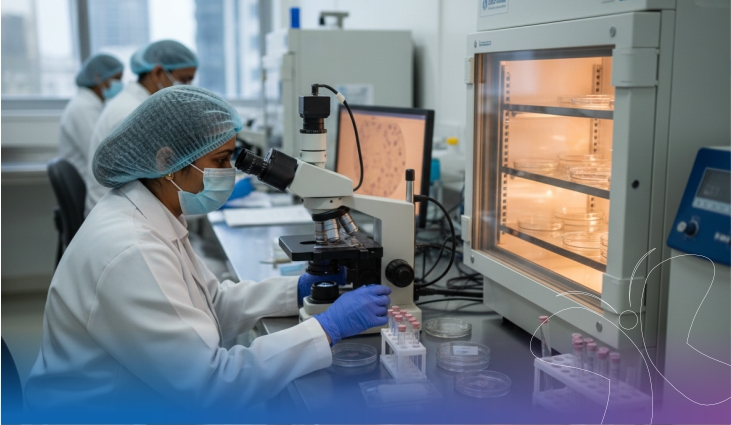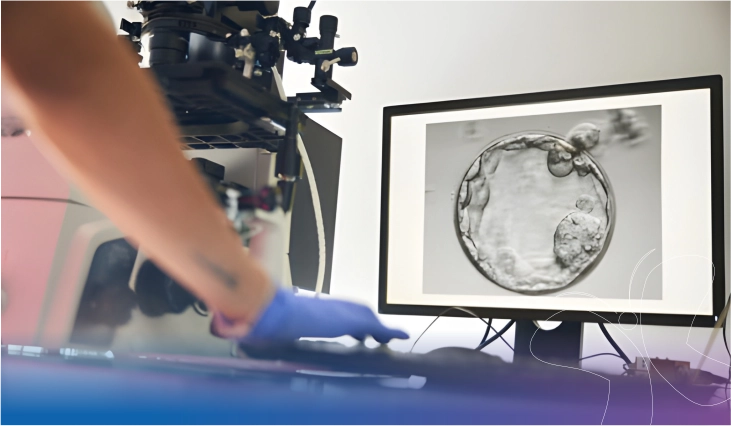When a couple struggles to conceive, the spotlight often falls on the woman her age, her cycles, her health. But here’s what we explain every day at Flowrence: 40–50% of fertility issues stem from male factors. And often, the most overlooked aspect is sperm quality.
Even in couples planning naturally, poor sperm health can delay conception, increase miscarriage risk, and complicate IVF cycles. If you're planning a pregnancy or even just starting to think about it this is a conversation you need to have.
What do we mean by "sperm quality"?
We’re not just talking about the number of sperm (sperm count), but also:
- Motility: How well sperm move
- Morphology: Their shape and structure
- DNA fragmentation: The stability of the genetic material
- Volume: The total semen quantity
A healthy sperm should swim well, be shaped correctly, and carry intact DNA. If any of these parameters fall short, it affects fertilization and early embryo development.
At our Rajkot IVF success rate hospital, we've seen how dramatically sperm quality can change outcomes both in natural conception and assisted reproduction.
What affects sperm health?
Many couples are surprised to learn that sperm quality is influenced by daily habits and lifestyle. Factors include:
- Smoking and alcohol use
- High stress
- Obesity or poor diet
- Sedentary lifestyle
- Excessive heat (e.g., tight clothing, hot water exposure)
- Environmental toxins and pollution
- Long-term use of certain medications or steroids
We’ve worked with men whose test results improved significantly just by correcting these before opting for treatment.
When should a man get tested?
Any couple that’s been trying to conceive for over 6–12 months should consider a semen analysis. It’s non-invasive, quick, and provides a clear starting point.
Even if you haven’t tried conceiving yet, we advise preconception testing in cases where:
- The male partner has a history of infections or surgeries
- There’s erection or ejaculation difficulty
- There's a history of diabetes, thyroid, or hormonal imbalance
- There's prior exposure to radiation, heat, or long-term medication
- You’re considering IVF or ICSI
We work closely with the best urologist in Rajkot to manage such cases especially when a structural or medical issue is identified.
How we approach male fertility at Flowrence
At our women care hospital in Rajkot, we don’t isolate fertility to just the woman’s body.
We believe in couple-based counselling, early diagnostics, and lifestyle-first interventions.
For IVF couples, we ensure advanced sperm preparation techniques, DNA fragmentation testing, and expert guidance on antioxidant therapies all of which impact fertilization and embryo quality.
Because good embryos don’t just come from good eggs. They need healthy sperm too.
Steps every man can take right now
- Quit tobacco and alcohol
- Get 30 minutes of moderate exercise 5 days a week
- Maintain a healthy weight
- Sleep 7–8 hours a night
- Include zinc, folate, and antioxidants in your diet (under supervision)
- Reduce mobile and laptop exposure in the lap area
Final Thought
Planning for a baby shouldn’t rest on one person’s shoulders. Male fertility isn’t secondary it’s central.
If you’re starting the journey, start it as a team.
At Flowrence, we’re ready to support you both. Flowrence Hospital A trusted Rajkot IVF success rate hospital built on partnership, not blame.
Let’s move forward together informed, prepared, and supported every step of the way.











































































































































































































